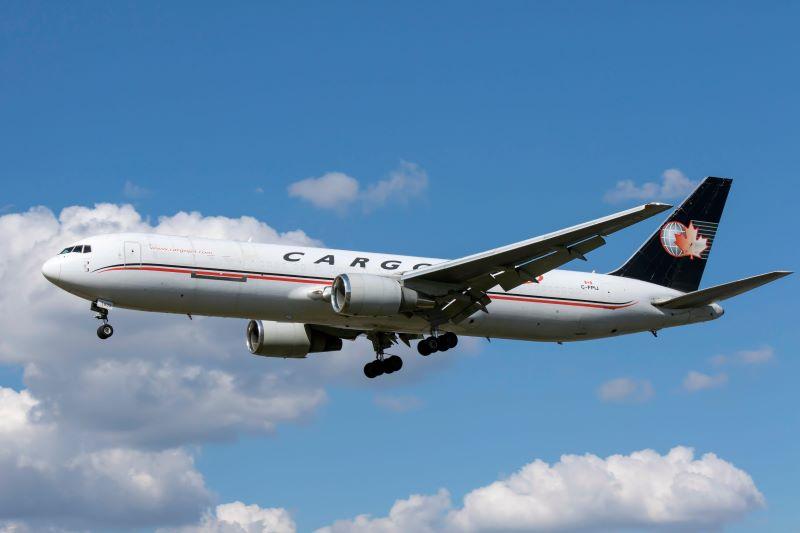
Cargojet is deferring capital expenditures by approximately $400 million, largely involving four Boeing 777-300s.
The Canadian cargo airline attributes the move to a slowing global economy and said it will maintain “full access” to its widebody conversion slots, through arrangements with its MRO partners. The slots could also be sold, transferred or deferred, executives noted. Four additional 777s earmarked for DHL are continuing cargo conversion.
“The feedstock market for 777s is expected to remain strong, allowing Cargojet to initially divest feedstock of two 777s, freeing up cash to be used to pay down debt, while retaining optionality on conversion slots for 2024 through 2026, should the economic climate turn positive earlier than expected,” CFO Scott Calver said in the company’s fourth quarter (Q4) earnings call.
Of the 777s being deferred, Cargojet said they were intended to expand the company’s international reach and expected the disposal to have no impact on current operations. The company will also defer conversion of two 767-200s from 2023 to 2024.
Speaking to investors on March 6, CEO Ajay Virmani forecast 2023 to be a growth year, though not one measured in double-digits.
“It won’t be like a hockey stick that we have seen in the past three years for sure,” Virmani said. “It will be in the mid-single digits probably.”
Describing year-over-year growth in 2022 as record-setting, the company pointed to challenges and higher costs accrued while keeping up with customer demand. Training was “very, very expensive” in 2022, executives noted, versus earlier in the pandemic when the company was hiring pilots laid off from passenger airlines.
“When you can’t grow fast enough, you do everything pretty much at any cost,” Calver said. “That’s overstating it. But we ran very high costs for overtime and for training, and to some extent, for temporary employees. We went from being able to train pilots measured in days to training pilots measured in months. When you’re taking several months to train a pilot to be certified to fly a 767 or 757, in the meantime you’re running overtime to backfill for those positions. So, we ran very, very high cost to onboard all that revenue growth last year.”
Within the 2023 first quarter Virmani said the company expects to make “tremendous adjustments” to its costs including training, overtime and rightsizing the fleet “and basically freezing everything else that does not produce a dollar.”
Of the four 777s being deferred, Cargojet expects to complete the $53.5 million sale of two early in the second quarter.
For Q4 2022 the company reported a 97.5% drop in net income, to C$2.6 million ($1.9 million). Q4 revenues were up 13.2% year-over-year to $267 million, on a 30.1% increase in direct expenses to $205.1 million. Full-year net earnings rose 13.9% year-over-year to $190.6 million, on top of a 29.3% jump in revenues to $979.9 million. Direct expenses for the year were up 39.4% over 2021 to $732.4 million.
“The continued global increase in e-commerce demand has produced strong growth in our domestic and ACMI business segments during the quarter,” Virmani said. “We continue to monitor various macro risks including a potential recession, which may have impact on consumer spending. As such, Cargojet continues to carefully manage its strategy to match the capacity required with actual customer demand.”
